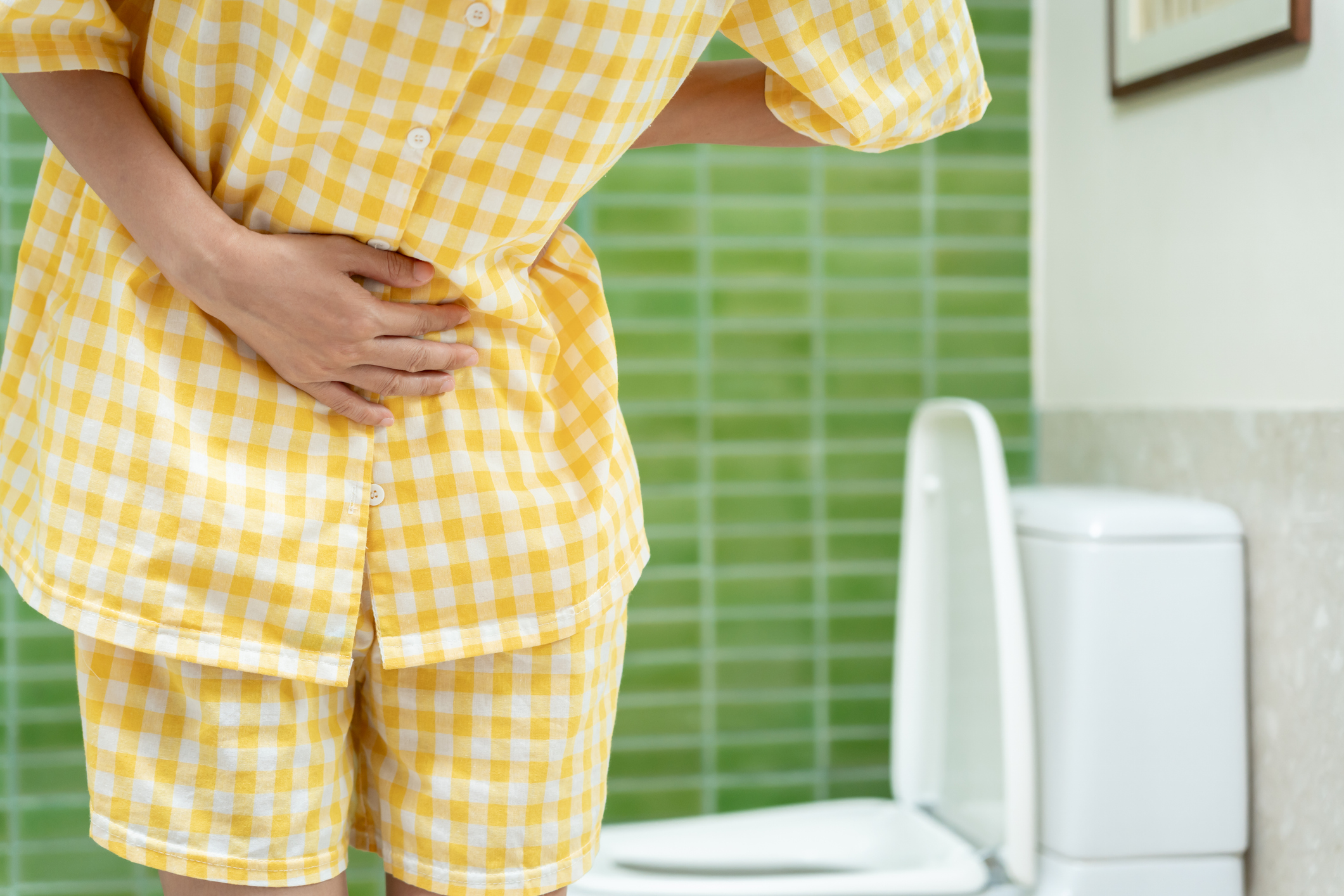

You’ve heard us repeatedly say that diet is the first line of defense against many conditions, from diabetes to heart disease.
Even when disease is present, eating well may help control symptoms, manage progression and keep the need for medications (that often come with nasty side effects) to a minimum.
Well, score another point for food vs. medication, thanks to recent research proving once again that food is the best medicine…
What is IBS?
It’s not unusual to have the occasional bout of stomach trouble — stomach pain, gas, diarrhea or constipation can happen to anyone from time to time.
But if you’re dealing with these symptoms on a regular basis, it could be a sign of a gut disorder known as irritable bowel syndrome, or IBS.
No one really knows why IBS strikes some folks and spares others. Unfortunately, it’s fairly common, and can take over your life, leaving you afraid to ever be far from a bathroom… just in case.
But the “inconvenience” of IBS isn’t the worst of it: if you suffer from IBS, you’re not absorbing the important nutrients you need to maintain your health.
Treating IBS
Your doctor may prescribe medications that address the symptoms of IBS by relaxing muscle contractions of the colon to ease diarrhea or by increasing fluid secretion in your small intestine to help you pass stool and avoid constipation.
Research has shown that following a low FODMAP diet can go a long way in reducing the bowel troubles of IBS and the discomfort that comes along with it.
FODMAP is an acronym for Fermentable Oligo-Di-Monosaccharides and Polyols.
FODMAP works because it decreases the consumption of different carbohydrates (sugars) found in foods — specifically fructose, lactose, fructans, galactans and polyols. They are hard to digest and end up lingering in the gut where they ferment and cause the uncomfortable and unpleasant symptoms of IBS.
But which works better, medication or a change in diet?
A recent study found the answer…
FODMAP is the clear winner
Researchers at the University of Gothenburg in Sweden gave three different treatments to three groups of 100 people each — all of whom had moderate to severe IBS symptoms.
The first group was instructed to follow a FODMAP diet. The second group received a dietary treatment low in carbohydrates and high in protein and fats.
The third group received the best possible medication based on the patient’s most troublesome IBS symptoms.
At the end of the four-week treatment period, 76% of those in the FODMAP group saw a reduction in symptoms. In the group receiving low carb and high protein and fat, 71% saw reduced symptoms. The medication group had a reduction of only 58%.
This is good news since traditional medications for IBS can produce side effects ranging from headache, fatigue and heartburn to diarrhea, gas and abdominal pain — the very symptoms they’re meant to eliminate.
How to eat FODMAP
If you or a loved one are living with IBS, you’ll want to give the FODMAP diet a try before turning to medication.
Here are the basics.
Some foods to avoid are:
- High fructose corn syrup
- Dairy items that are high in lactose like milk, ice cream, buttermilk and sour cream
- Grains that contain gluten like wheat, barley and rye
- Certain fruits like apples, mangoes, peaches, pears, plums and watermelon
- Some vegetables like artichokes, cauliflower, mushrooms and sugar snap peas
- Beans and lentils
What you should eat:
- Meat, fish and eggs
- Nuts and seeds
- Corn, oats and rice
- Healthy fats and oils (like EVOO)
- Herbs and spices
- Lactose-free dairy products, as well as hard cheese
Fresh fruits and vegetables that are safe to eat on this diet, include:
- Peppers
- Carrots
- Cucumbers
- Eggplant
- Potatoes
- Sweet potatoes
- Tomatoes
- Unripe bananas
- Cantaloupe
- Oranges
- Strawberries
- Blueberries
- Pineapple
- Grapes
People who suffer from IBS also tend to have certain triggers that cause their symptoms to kick up. Watch out for these 4 things that can cause an IBS flare.
Sources:
Dietary treatment more effective than medicines in IBS — Science Daily
A low FODMAP diet plus traditional dietary advice versus a low-carbohydrate diet versus pharmacological treatment in irritable bowel syndrome (CARBIS): a single-centre, single-blind, randomised controlled trial — The LancetFODMAP Diet: What You Need to Know — Johns Hopkins Medicine

